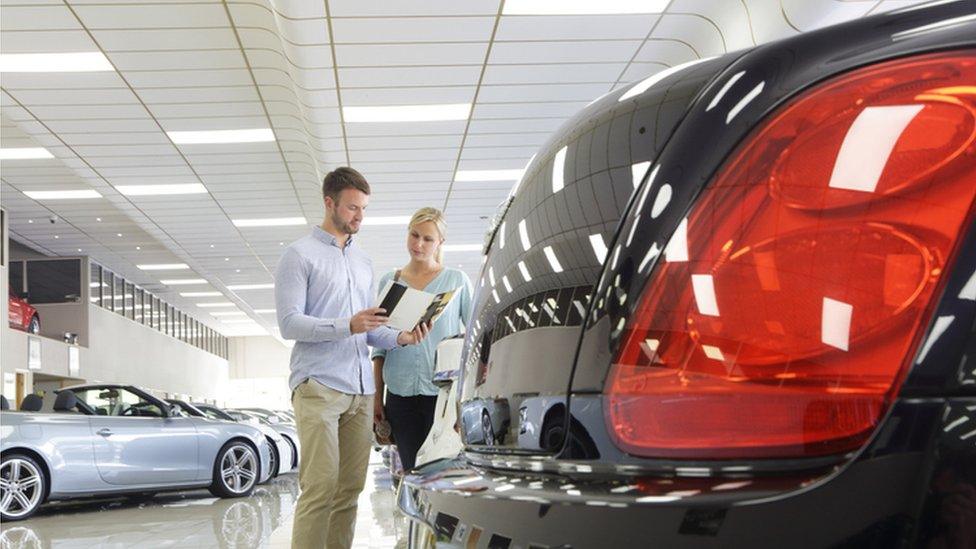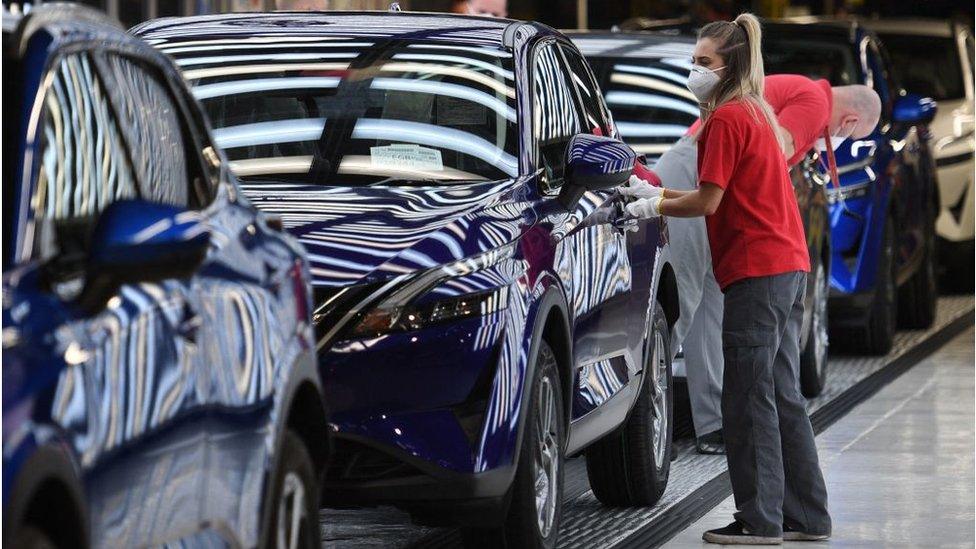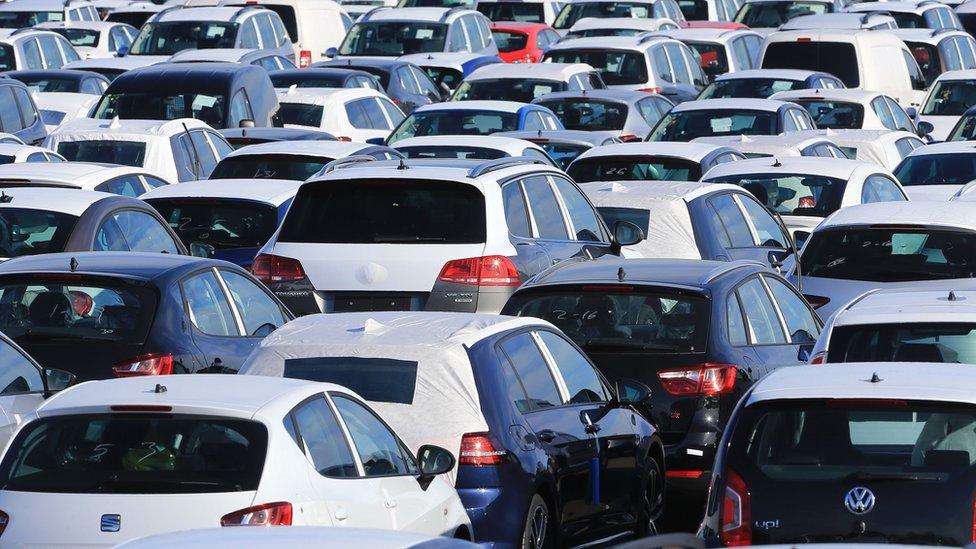Northern Ireland's new car market recovering with rise in sales
- Published
- comments

Supply chain issues caused knock-on problems with the global new car market
Northern Ireland's new car market continued to recover in August, with sales up 10.5% on the same month last year.
Figures from the Society of Motor Manufacturers and Traders (SMMT) show a total of 3,314 new cars were sold compared to 2,998 in August 2022.
In the last couple of years, the new car market was hit by supply chain problems.
These issues delayed the delivery of vehicles.
There were particularly serious problems obtaining semi-conductors, which are used in a vast array of electronic systems, from in-car entertainment to engine management.
On a year to date basis, sales in Northern Ireland were up 17.4% from 26,896 to 31,574.
In the UK as a whole, new car registrations rose 24.4% in August with battery electric vehicles accounting for just over a fifth of sales.
Meanwhile, a small survey suggests consumer confidence in Northern Ireland improved slightly over the summer as the local economy showed more resilience than expected.
'Cautious' consumers
Lower oil prices also helped confidence, the Irish League of Credit Unions (ILCU) said.
However the survey suggests that the overall mood is still "fairly downbeat" in the face of high inflation.
The study involved a representative sample of 350 adults who were surveyed by Core Research between 4 and 28 August 2023.
Economist Austin Hughes, who analyses the data for the ILCU, said the survey "hints that concerns about the cost of living and the threat of a severe economic downturn have lessened materially of late", but economic and financial pressures are still pronounced for many households.
"The message of the August reading is one of a Northern Ireland consumer who is still cautious rather than carefree," he continued.
Just under half of the people surveyed in August said they expected the overall economic situation to get worse over the next 12 months.
That is compared to 58% in April and 64% in January.
When asked about their household's financial outlook over the next 12 months, 40% of respondents expect things to get worse compared to 45% in April and 51% in January.
Related topics
- Published4 May 2023

- Published5 October 2021
